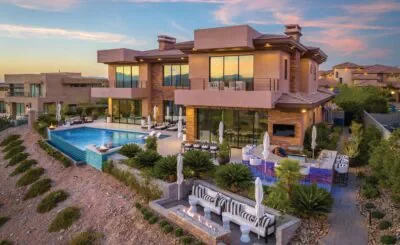Buying a high-end property is an exciting and significant investment, but it requires careful consideration to ensure you make the best decision. Here’s what you need to know before purchasing a luxury home:
1. Define Your Priorities
Luxury properties come in many forms—high-rise penthouses, sprawling estates, golf course homes, or private gated communities. Consider:
- Lifestyle Needs: Do you want waterfront views, a home theater, or a private gym?
- Location: Are you looking for exclusivity, proximity to entertainment, or a certain school district?
- Amenities & Features: Smart home technology, infinity pools, custom wine cellars—what’s non-negotiable for you?
2. Work with a Luxury Real Estate Specialist
Not all realtors have experience with high-end properties. A luxury market expert has access to off-market listings, understands pricing in exclusive neighborhoods, and can negotiate in ways that protect your investment.
3. Understand the Market
Luxury real estate doesn’t follow the same trends as the standard housing market. It’s essential to:
- Review historical pricing trends in your desired area.
- Compare price per square foot in similar properties.
- Consider how economic factors (interest rates, stock market trends) may impact high-end sales.
4. Financing & Proof of Funds
Unlike conventional homes, luxury properties often require larger down payments (20-50%) and jumbo loans with specific qualification criteria. If you’re paying cash, expect to provide proof of funds early in the process.
5. Due Diligence & Property Inspections
Luxury homes often have unique features like custom-built structures, advanced security systems, and high-end materials that require specialized inspections. Be thorough in evaluating:
- Foundation, roofing, and mechanical systems.
- HOA restrictions or architectural guidelines in gated communities.
- Property history, including renovations and prior ownership.
6. Privacy & Security Considerations
Many high-net-worth individuals prioritize privacy. Ask about:
- Gated access, private roads, and security measures.
- Confidentiality clauses in contracts to protect your information.
- Smart security systems to monitor the property remotely.
7. Resale Value & Long-Term Investment
Even if this is your dream home, consider future marketability. Factors that affect resale value:
- Unique architecture vs. timeless design.
- Land value—a great location holds its worth.
- Market desirability—how easily can this home sell in a changing market?
8. Lifestyle & Maintenance Costs
Owning a luxury home means ongoing costs beyond the purchase price. Factor in:
- Property taxes—higher in luxury areas.
- HOA or community fees—often required for gated communities.
- Staffing needs—housekeepers, landscapers, and maintenance crews.
- Utility costs—larger homes require more energy.
9. Legal & Zoning Regulations
Some high-end properties come with specific restrictions:
- Zoning laws that limit renovations or additions.
- Rental restrictions if you plan to lease it as a vacation property.
- Historic designations that prevent modifications.
10. Off-Market & Exclusive Listings
Many luxury homes are not publicly listed to protect seller privacy. Work with an agent who has access to private networks and exclusive listings.
Luxury real estate is about more than just the price tag—it’s about quality of life, smart investing, and securing the right property for your needs. If you’re serious about buying a high-end home, let’s discuss your goals and find the perfect property for you.
👉 Contact me today to explore the best luxury listings in Las Vegas!




